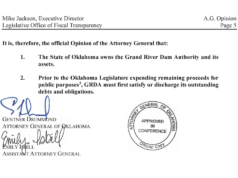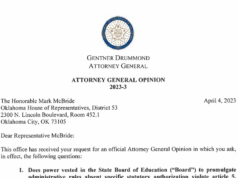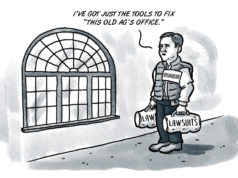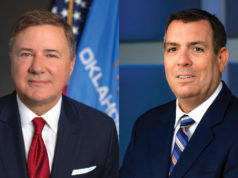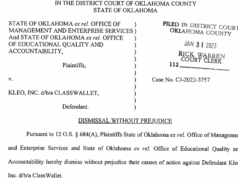
Two veteran journalists aired concerns Monday on Twitter about the speed with which the Oklahoma Attorney General’s office is completing open records requests.
“I could talk about this all day. It makes my blood boil,” StateImpact Oklahoma reporter Joe Wertz said late Monday evening. “Open records aren’t for the press or the media or the nut-job media who can pursue them and fight with the nincompoops at some government agency, they’re for the public.”
Frustrated by multiple records requests that he said have languished for months in Attorney General Scott Pruitt’s office, Wertz tweeted Monday to address the matter publicly.
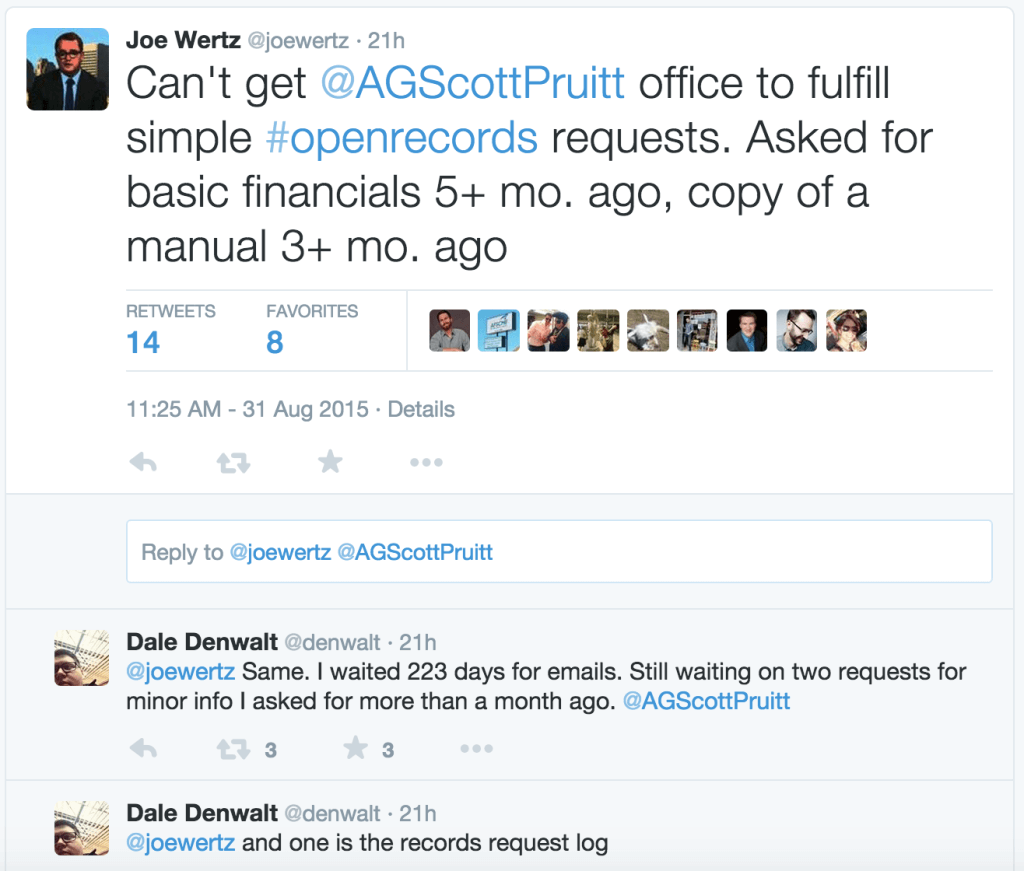
Wertz’s tweet elicited a comment from Dale Denwalt, who covers the Capitol for the Journal Record.
Denwalt confirmed he had waited 223 days for a records request made in December regarding AG-office e-mails with the New York Times about a hard-hitting story they had published. The story addressed Pruitt sending a letter to the federal Environmental Protection Agency that appeared largely drafted by someone with Devon Energy.
Denwalt said he made that request as a private citizen when he was reporting for the Enid News & Eagle.
“I wanted to get a sense for, ‘How did the New York Times do the records request?'” he said, noting he did not even expect to write a story about those records, which he still has not. “It was about 200-something pages worth of e-mails. It wasn’t redacted at all.
“You don’t have to have a reason to ask for records. That’s kind of where I’m coming from because I asked for it from my personal Gmail account.”
Denwalt reiterated that he has never been ignored by the Attorney General’s office, and that the office actually completed a separate records request he had made “an hour or two” after he tweeted to Wertz.
“State agencies understand the importance that the Open Records Act and the Open Meeting Act have for letting the public keep an eye on them,” Denwalt said. “This isn’t just about journalists. Whether you’re an attorney or a lawmaker or just Joe Q. Citizen, you’ve got a right to certain records.”
As a board member for FOI Oklahoma, an organization that supports public access to records and meetings, Wertz went so far as to call records-request compliance a problem for many agencies, including Gov. Mary Fallin’s office.
“I get these e-mails every day from people who are totally bewildered at trying to get basic information out of their government,” Wertz said, noting the complaints come from communities big and small across Oklahoma. “It’s disheartening and frustrating and scary.”
Wertz said he has waited almost six months for one request from Pruitt’s office and almost four months for another.
“In the case of the A.G., I’m asking for basic financials: revenues, tax ledgers, basic types of revenues,” he said. “This is not that I’m asking for emails and you have to redact out social security numbers. I asked for a policy manual that they ostensibly have on a bookshelf, but that’s caught up in something.”
Aaron Cooper, director of communications for the Attorney General’s Office, said the staff tasked with fulfilling open records requests also have other primary job responsibilities and duties.
“The Attorney General’s Office is committed to meeting its responsibilities under the Open Records Act,” Cooper said in a statement. “The office receives a large number of such requests. The office must devote a lot of time and resources to searching for, reviewing and producing records to fulfill these requests.”
Cooper, who said he spent much of his Tuesday working media for Pruitt’s recent letter to state governors asking that they impose sanctions on Iran, noted that many requests relate to “ongoing litigation and pending investigations,” which are protected from disclosure under the Open Records Act.
“The Attorney General’s Office will continue to respond to Open Records Act requests as quickly as possible in addition to defending the interests of the state and its citizens,” Cooper added.
Complaints and concerns about the time it takes for public records to be made available have been voiced many times before, and in mid-2014, the governor’s office said it had hired a part-time employee to review the large number of requests they receive.
Despite that hire, Oklahoma Watch reported in March that the governor’s office had not released any public records requested in the preceding 11 months.
Wertz said delays of that length mean policy issues are often past the point of public consideration by the time records become available. He said he tries to put in requests regularly, some formally and some informally.
By averaging about one per week across all levels of government, Wertz said he understands public bodies can find it stressful. Back in March, he came across his own name in an e-mail released by the state:

“I know I’m annoying, I get it,” Wertz said. “And it should be said that there are agencies that are great. Water Resources Board is fantastic. I couldn’t be happier working with them.”
But compliance in a “reasonable” time frame is the law, and Wertz said sometimes entities “stretch the definition of quote-unquote reasonable to unimaginable ranks.”
“A lot of these agencies have never been down this road before,” he added. “But, hell, some of them are stuffed with attorneys who obviously know better. Any agency with an elected official at the helm knows what they are dealing with.”
(10:20 a.m. 9/2/15, Correction: An earlier version of this story failed to identify StateImpact Oklahoma as its own journalistic entity formed through collaboration among four Oklahoma public radio stations.)











